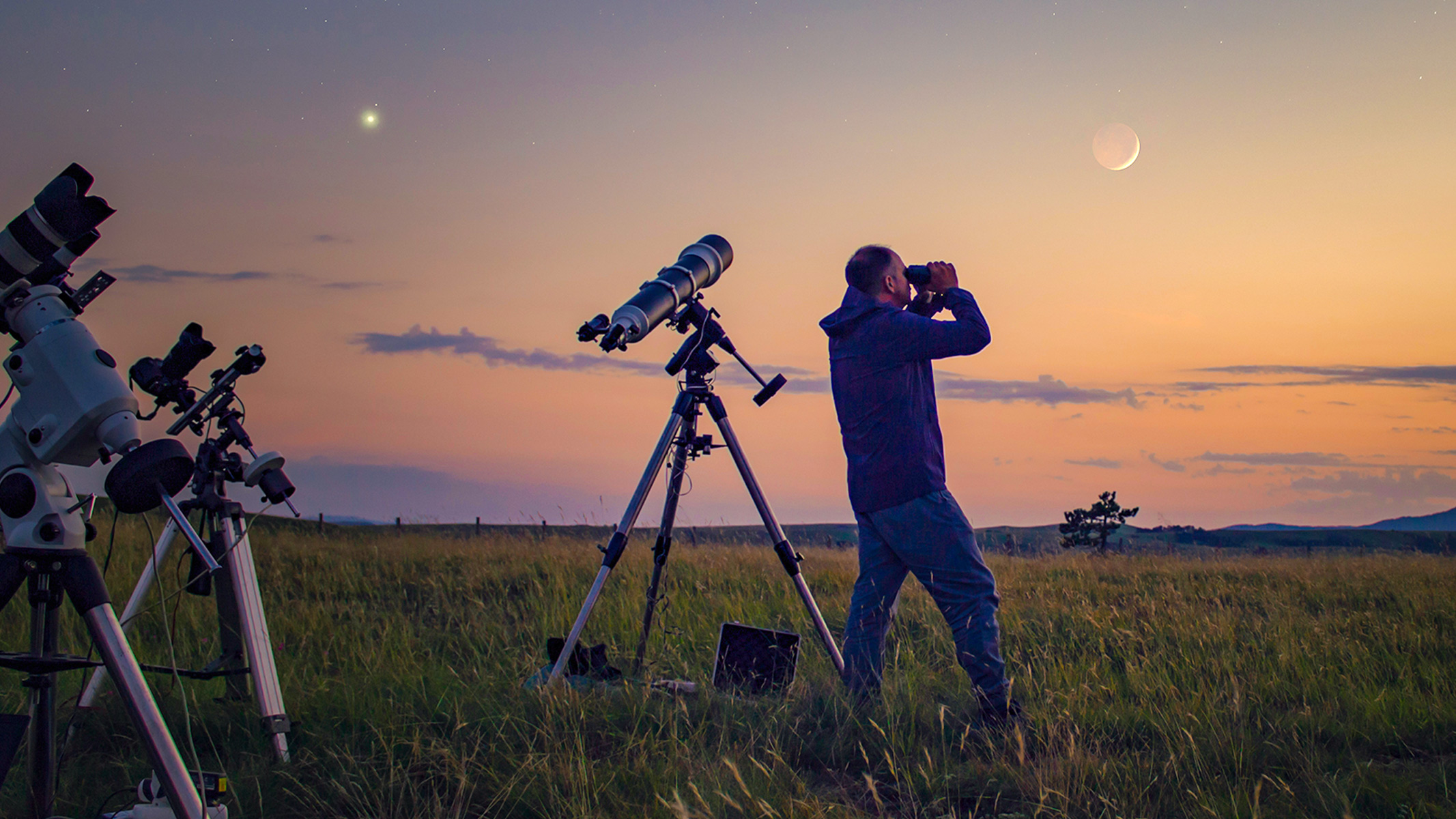9 Best Telescopes for Astrophotography: Top Picks for Stunning Night Sky Photos
Ever gazed up at the night sky and wondered how to capture its breathtaking beauty? Whether you’re a seasoned stargazer or just starting out, finding the right telescope for astrophotography can make all the difference. With so many options available, it can be overwhelming to choose the perfect one for your needs.
Criteria for Selecting the Best Astrophotography Telescope
When choosing a telescope for astrophotography, you need to consider a few key criteria to ensure the best results.
Aperture Size and Impact on Image Quality
Aperture size greatly impacts image quality. Larger apertures, like those 8 inches or more, gather more light, providing clearer and brighter images. This is crucial for capturing faint objects, such as distant galaxies and nebulae. Newtonian reflectors and SCTs (Schmidt-Cassegrain Telescopes) often offer excellent aperture sizes for various budgets.
Mount Types and Their Importance
Mount types are critical for stability and tracking precision. Equatorial mounts, with their celestial pole alignment, provide smoother tracking, ideal for long-exposure astrophotography. Alt-azimuth mounts are simpler but less accurate over time. German equatorial mounts (GEM) are popular for their reliability and accuracy.
Considerations for Portability and Setup
Portability and setup considerations affect your overall experience. Lightweight and compact telescopes, like refractors, ensure easy transportation and quicker setup. For those without permanent observatories, collapsible designs and travel-friendly mounts, such as portable GoTo mounts, offer convenience without sacrificing performance.
Rank 1: Refractor Telescopes for High Contrast Images
Refractor telescopes offer stunning high-contrast images, making them ideal for astrophotography. They’ll help you capture crisp, detailed shots of celestial objects.
Best Overall Refractor Telescope for Beginners
The Orion ED80T CF Triplet Apo Refractor is perfect for beginners. It features an 80mm aperture, delivering sharp and high-contrast images. With its triplet apochromatic lens, it reduces chromatic aberration, ensuring vibrant colors in your photos. Additionally, it’s lightweight and portable, making it easy to transport and set up.
Top Premium Refractor Telescope for Advanced Photographers
Advanced photographers will love the Takahashi FSQ-106EDX4. This premium refractor telescope boasts a 106mm aperture and an advanced four-element optical design. It significantly reduces optical distortions, providing incredibly detailed and high-contrast images. The sturdy build and precision engineering make it a reliable choice for serious astrophotographers aiming for professional-grade photos.
Rank 2: Reflector Telescopes for Deep-Sky Viewing
Reflector telescopes excel in capturing faint celestial objects, making them perfect for deep-sky viewing. They provide excellent value for their large aperture sizes without breaking the bank.
Leading Budget-Friendly Reflector Telescope
The Orion SkyQuest XT8 Classic Dobsonian offers a budget-friendly entry point into deep-sky astrophotography. Its 8-inch (203mm) aperture collects a substantial amount of light, allowing you to observe galaxies, nebulae, and star clusters. The telescope’s Dobsonian mount is user-friendly, providing smooth and stable tracking. Despite its affordability, it delivers impressive optical performance with sharp images and minimal distortion.
Top Choice for Advanced Deep-Sky Astrophotography
The Sky-Watcher Quattro 300P Imaging Newtonian stands out as a top choice for advanced astrophotography. With a large 12-inch (300mm) aperture, it captures incredible detail in distant celestial objects. The telescope’s fast f/4 focal ratio makes it ideal for astrophotography, as it reduces exposure times and delivers crisp, high-resolution images. Additionally, its dual-speed Crayford focuser ensures precise focusing, essential for capturing stunning deep-sky images.
Rank 3: Compound Telescopes Combining the Best of Refractors and Reflectors
Compound telescopes offer the advantages of both refractors and reflectors, making them versatile options for astrophotography. These telescopes provide excellent image quality and practicality.
Most Versatile Compound Telescope for Hobbyists
The Celestron NexStar 6SE stands out as the most versatile compound telescope for hobbyists. This Schmidt-Cassegrain telescope offers a 6-inch aperture, allowing you to capture stunning lunar and planetary images. Its computerized mount makes locating celestial objects easier, while its compact design ensures portability. Additionally, the NexStar 6SE is compatible with various astrophotography accessories, enhancing your imaging experience.
Best High-End Compound Telescope for Serious Astronomers
For serious astronomers, the Meade LX200-ACF is the best high-end compound telescope. Featuring an advanced coma-free optics design, this telescope eliminates the typical coma aberrations found in traditional reflectors. Its 8-inch aperture provides impressive light-gathering capability, perfect for deep-sky and planetary photography. The LX200-ACF also includes a robust, computerized mount and a GPS receiver, offering precise tracking and ease of use for long-exposure astrophotography.
Rank 4: Specialized Astrophotography Telescopes
Picking the right specialized astrophotography telescope can significantly elevate your celestial images, capturing breathtaking details and vibrant colors.
Top Telescope with Dedicated Astrophotography Features
Explore the Sky-Watcher Esprit 100ED, a premier refractor telescope offering unrivaled precision. This model features a triplet apochromatic design, eliminating chromatic aberration which ensures crisp, clear images. Its 100mm aperture provides excellent light-gathering capability, crucial for deep-sky photography. The Esprit 100ED also includes a field flattener to maintain edge-to-edge clarity. With a dual-speed focuser, you can achieve fine adjustments easily, making this telescope a top choice for serious astrophotographers.
Best Telescope for Automated Imaging
Consider the Celestron RASA 8, designed for seamless automated imaging. The Rowe-Ackermann Schmidt Astrograph (RASA) boasts an exceptionally fast f/2.0 focal ratio, reducing exposure times and capturing detailed images quickly. Its 8-inch aperture excels in gathering light, perfect for photographing faint nebulae and galaxies. Integrated with a motorized focuser and advanced imaging software, the RASA 8 simplifies the capture process, offering user-friendly automation for capturing stunning astrophotographs effortlessly. This telescope stands out for those seeking an automated, hands-off approach.
Rank 5: Portable Telescopes for Traveling Astrophotographers
When you’re on the go, a lightweight, portable telescope is essential for capturing stellar images. Here are our top picks for traveling astrophotographers.
Top Portable Telescope for On-the-Go Imaging
The Orion 10012 SkyScanner 100mm TableTop Reflector is ideal for on-the-go imaging. Its compact tabletop design makes it easy to set up wherever you are, and its 100mm aperture gathers sufficient light for deep-sky observation. The telescope’s 400mm focal length produces wide-field views, perfect for capturing large celestial objects like nebulae and star clusters. With an easy-to-use altazimuth mount and a weight of only 6.2 pounds, this telescope is a great travel companion.
Most Compact Design for Easy Transportation
The Celestron 80mm Travel Scope offers a super compact design for effortless transportation. Its fully-coated glass optics deliver clear, sharp images, and its 80mm aperture ensures ample light-gathering capability. The telescope collapses into a small backpack, making it a favorite among backpackers and hikers. Weighing just 5 pounds, this scope includes a full-height tripod and custom backpack, keeping all your gear organized and ready for your next astrophotography adventure.
Additional Accessories and Equipment for Astrophotography
Enhancing your astrophotography experience requires more than just a telescope. Here are some essential accessories and tools that can help you capture stunning images of the night sky.
Essential Camera Adapters and Filters
Adapters: You’ll need the right camera adapter to connect your DSLR or mirrorless camera to the telescope. T-rings and T-adapters are vital. They ensure a secure fit and optimal alignment, crucial for clear images.
Filters: Investing in quality filters can significantly improve your photos. Light pollution filters reduce the effects of city lights. LRGB filters (Luminance, Red, Green, Blue) are perfect for capturing detailed color images. Narrowband filters isolate specific wavelengths like H-alpha, Sulfur-II, and Oxygen-III, allowing for stunning nebula shots.
Recommended Software for Image Processing
Software: Image processing is just as important as capturing the photos. Adobe Photoshop is a popular choice for its flexibility and powerful tools. PixInsight specializes in astrophotography, offering advanced features for noise reduction, image stacking, and enhancing faint details. DeepSkyStacker is great for beginners; it simplifies the process of stacking multiple images to improve clarity.
By combining the right accessories and software with your telescope, you’ll be well-equipped to take your astrophotography to the next level.
Conclusion
Choosing the right telescope for astrophotography can significantly elevate your stargazing and imaging experience. Whether you’re a beginner or an advanced photographer the right combination of telescope accessories and software can make all the difference. High-quality filters and camera adapters are essential for capturing stunning images while software like Adobe Photoshop and PixInsight can enhance your results. Investing in specialized astrophotography telescopes like the Sky-Watcher Esprit 100ED or Celestron RASA 8 can provide you with the tools needed to capture the night sky in all its glory. Happy stargazing and clear skies!






